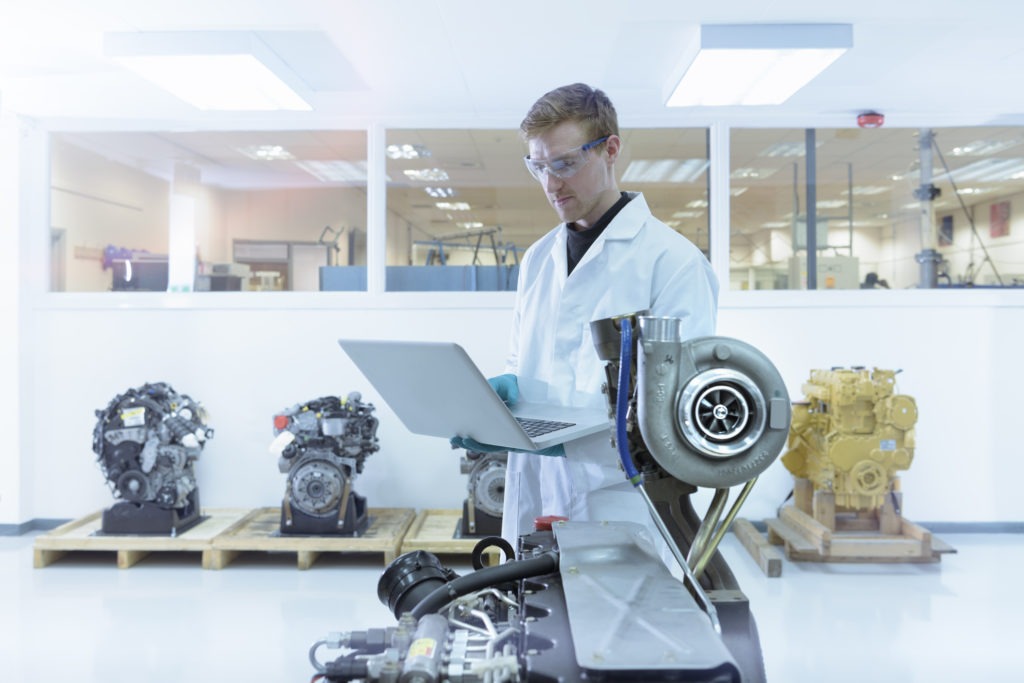Germany’s DEKRA invests in connected and autonomous vehicle monitoring
12 May 2017

12 May 2017
DEKRA, the German testing, inspection and certification (TIC) company reported on Wednesday that it has continued to benefit from the global rise in demand for safety. By further expanding its global position and wide range of digital safety services, DEKRA revenues climbed by 6.7% to €2.9 billion and adjusted operating earnings (EBIT) improved by almost 10% to more than €220 million in 2016. In addition to the burgeoning Internet of Things (IoT) sector, a key focus of the company going forward is on the testing of automotive components for networked and autonomous driving.
′This positive performance is driven both by digitization and the general rise in demand for safety,’ explained DEKRA’s CEO Stefan Kölbl. He added: ′Connected and digital – and safe at all times. This is what we are committed to. Our Vision 2025 to become the global partner for a safe world in the three areas of life – on the road, at work and at home – is more relevant than ever. On the road, this means creating safe mobility in the context of new developments driven by networked and autonomous driving. Occupational safety is facing major challenges with the growing role of robots. And safe connectivity also plays a crucial part in smart homes.’
DEKRA has responded to the further development of mobility and the associated area of motor vehicle connectivity by expanding its international testing network for the Internet of Vehicles (IoV). Five new labs were opened in Asia in 2016 and another one was opened in Hsinchu, Taiwan in January 2017. ′As the largest laboratory to date for networked and electronic driving, Hsinchu plays a key part in expanding our role on the automotive testing market,’ explained Kölbl.
DEKRA Automotive continued to make a significant contribution to the DEKRA Group’s success in fiscal 2016. Revenues climbed by 5.8% to €1.5 billion. DEKRA Automobil GmbH in Germany also saw an increase as its revenues grew in total by 3.5% to €1.1 billion. This reflects success in the core business of vehicle inspections and expert appraisals.
Internationally, DEKRA Automotive has expanded following the establishment and expansion of its testing centre network in Bulgaria, Sweden, and the US. As a result, DEKRA consolidated its position as a world market leader with around 26 million vehicle inspections per year. It also tapped into other markets such as Portugal and Luxembourg.
In the context of digitization, DEKRA also pushed ′Road Safety 4.0′ in fiscal 2016. ′In view of the rapid advancement of electronic assistance systems and the vision of automated driving, vehicle monitoring has to keep on developing as well,’ said Kölbl. DEKRA is therefore calling for binding rules to allow manufacturers access to vehicle data relevant to safety. He explained: ′Testing organisations always have to be informed about the current status of software updates. This is because software updates can be used by car manufacturers to change systems that are relevant to safety. As an independent third party, we want to help prevent digital ′Wild West’ scenarios in road traffic.’
DEKRA has been calling for tailpipe readings in addition to vehicle data when testing for emissions in order to detect manipulation in the context of environmental protection. At the beginning of 2017, the German Ministry of Transport announced a regulation stipulating the compulsory reintroduction of tailpipe exhaust gas measurements. ′We welcome this initiative because tailpipe measurements can make a significant contribution to air pollution control, especially in city centres,″ said Kölbl. ′This allows manipulated vehicles to be detected,’ he added.
In order to reduce particulate matter pollution, DEKRA also launched a large-scale trial in March 2017 together with the city of Stuttgart and street-cleaning specialists. Regular and intensive street-cleaning is intended to remove a large portion of the coarser particles. Only 6% of particulate matter comes from exhaust emissions, but 31% is caused by tyre and brake abrasion as well as particulate matter being churned up. DEKRA is supporting the trial by performing comprehensive measurements and laboratory analyses.
After the 13th year of growth in a row, DEKRA expects to continue the long-term growth trajectory in 2017. CEO Kölbl said: ′We have set the course to ensure safety in the digital world as well in the future. In this context, our established expertise as a global market leader for vehicle inspections and the new business fields in electronics and telecommunications complement each other perfectly. To do this, we will build two large test areas: One for automated driving in Klettwitz near Dresden, Germany, and one for connected mobility in Málaga, Spain. Over the coming years, DEKRA will assume an active pioneering role with regard to the development and implementation of the necessary test standards.’